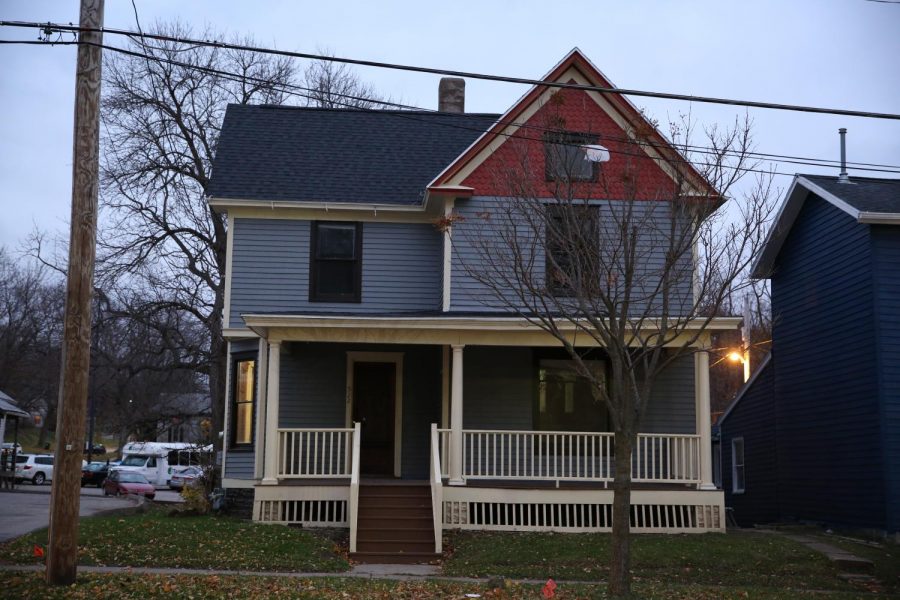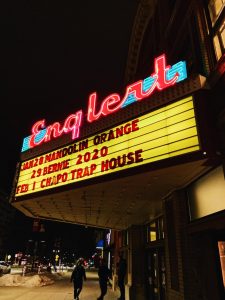Helpful housing
Housing is a big hit to the wallet; luckily, Iowa City has multiple housing rehabilitation and purchasing programs to help.
Johnson County has been known to have some of the more expensive housing. It’s a popular area to be in for many reasons. What if you don’t have the means for a good house?
Iowa City housing rehabilitation programs focus on a cheaper, easier way to purchase houses in good condition, as well as renovate the house a lower income occupant may already own.
To be eligible for these programs, interested participants must meet income requirements.
There are 25,858 people living below the poverty line in Iowa City. Making repairs on your house can be difficult to fund. The city’s housing rehabilitation programs provide grants and/or zero-interest loans to homeowners who need to make repairs.
“The original program was brought up by a lot of the neighborhoods that are affected by the rental issues,” says David Powers, a housing inspector for the housing rehabilitation programs, referring to the UniverCity. “The city council agreed that the city should do something […] and the staff created the programs.”
People who purchase homes through this program often use it for financial help. This program is capped at 140% of the median area income.
“The benefit to working with us is we have already done all the major work these homes need as far as being able to just move in and live in it so it kind of alleviates the burden,” Powers said. The benefit to working with us is we have already done all the major work… — David Powers
The UniverCity program is directed more toward neighborhood stabilization. It has helped stabilize a few concentrated areas and restored that rental to resident ratio.
The UniverCity program buys houses, primarily rentals, around the downtown area, the campus, and the hospital. They do an investigation of the home and see what needs to be done, then put it out to bid for local contractors. The city usually goes with the lowest responsible bid. They then sell the homes and mandate that they remain owner-occupied for a period of time, that is currently thirty years. This time has changed over the years. This program helps to balance the rental to resident ratio in areas closer to downtown and the university.
Jack Brooks is a consumer in this program. He bought a home through the process and is happy with his decision. He applied for the program about a year and a half ago. He and his family pursued and eventually got a house the UniverCity program was working on about six months after applying.
“I went to school here and moved back to Iowa City in 2016. I was unaware of the housing market here. […] When [my family and I] first moved here we bought a house on the south side of Iowa City. […] We just settled on a house that we didn’t love. […] When we found the house through the UniverCity program we applied.”
They were relieved to find a house they liked and could afford through the program.
“It’s just a great program. The opportunity that it offers for people to afford housing that [they otherwise] wouldn’t be able to obtain is great,” Brooks said. It’s just a great program. — Jack Brooks
Brooks would like people to know that even though you have to wait to find the right house for you, be patient and prepared. You may suddenly find the house you want.
Most of the cities housing programs- whether they are city or federally funded- are used by people who already own their homes, and just need to make repairs to them.
These programs have various sources of funding, ranging from city to federal. The federal housing rehabilitation and repair program has two funding sources. One is the Community Development Block grant and the other is the HOME Investment Partnerships Program. These funds are used to assist low and moderate-income homeowners.
To be given the funding by these grants, the participant must fall at or below 80% median area income for the household size.
GRIP(General Rehab and Repairs) is a city-funded owner-occupied rehab program. This is capped at 110% of the median area income.
These repairs often include a leaky roof, plumbing or electrical problems, things many people may not have the means to fix.
To apply for these repairs, you need to send in an application and submit it to the city. Depending on the program, you may need to complete a few more applications.
The construction process may be slower in the winter, but they still make the repairs an occupant needs to make sure they are good-to-go for the weather they may have.
“The city found that when you [have] half the houses in the neighborhood rentals, especially if their college-age rentals, it increases the kind of problems you have in those cities,” Powers said. “The objective of that program is to target areas that we can kind of inject some more owner-occupied, some more long-term residents and kind of stabilize it.”
Powers feels that the programs have done their jobs, and will continue to do so. “It has been successful in a number of spots, areas where we concentrated a large number of projects. […] Overall, yeah, I would say that the program has accomplished its goal. It’s a popular program and the city council keeps funding it every year.” Overall, yeah, I would say that the program has accomplished its goal. It’s a popular program and the city council keeps funding it every year. — David Powers
Lucy Joseph, an enforcement specialist who works with Powers, is happy to work with these programs.
“Honestly, I think it’s a great program […] It’s just nice to know that you have that security blanket. Individuals can call us to help them out,”
Joseph has had good experiences with these programs and the families they’ve helped.
“It’s always nice to see homeowners reactions once their projects are done. You know, they’re super excited, I had a family a couple of years ago and she was in tears. [She said],’Oh my god I’m so thankful for what you guys have done,”
Joseph is happy to see those reactions that people don’t always get to see or hear. She is trying to get the word out about these programs. They help people in mobile homes and homes all across the city. If you live in Iowa City, all you need to do is apply.
“We work with a lot of local contractors too, they do a lot of the work, which is nice. […] The makeup of our homeowners is black, white, polka dot. You know, we look at everybody. It’s nice to have a program such as ours that [helps] those families that are in need of that,” Says Joseph to get the point across that you will not be turned away or discriminated against. The makeup of our homeowners is black, white, polka dot. You know, we look at everybody. — Lucy Joseph
The application to the UniverCity home ownership states, “No person shall be excluded from or denied on the basis of age, race, color, religion, creed, national origin, gender identity, sex, marital status, disability, sexual orientation or, with respect to the sale of real property and/or housing accommodations, the presence or absence of dependents, familial status or public assistance source of income,” reiterating the point of equality Joseph made. The housing rehabilitation programs do not reject projects to discriminate.
This program is here to be utilized by people who need assistance, whether it is purchasing or repairing a home.










